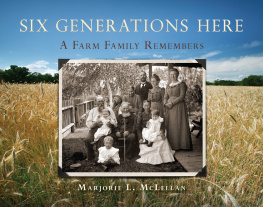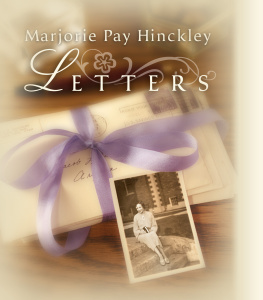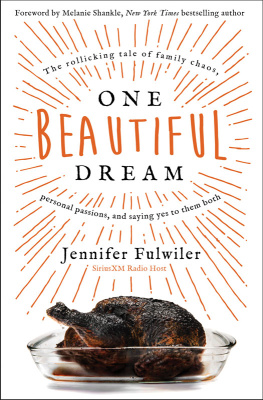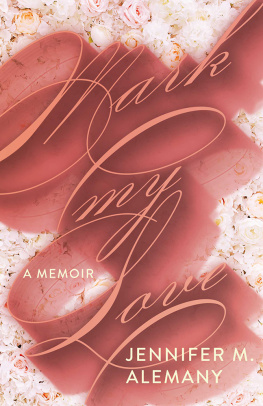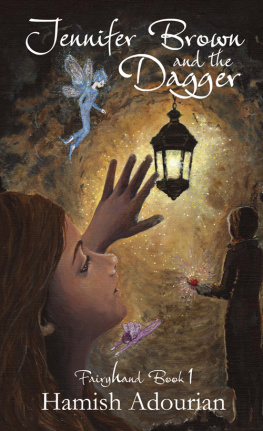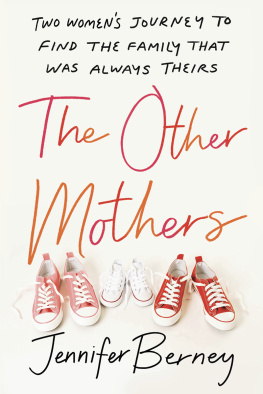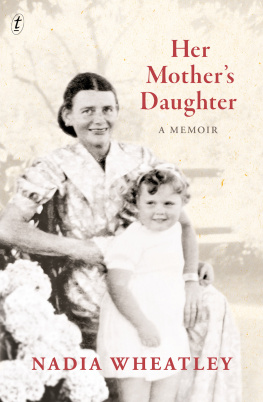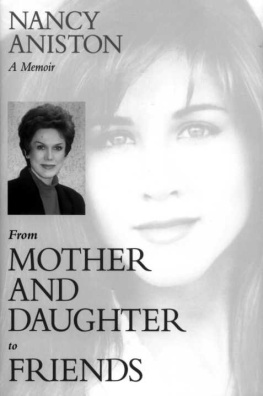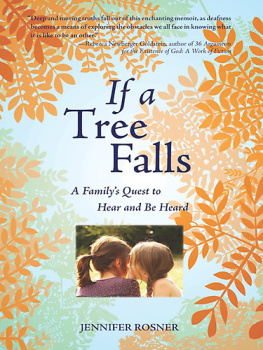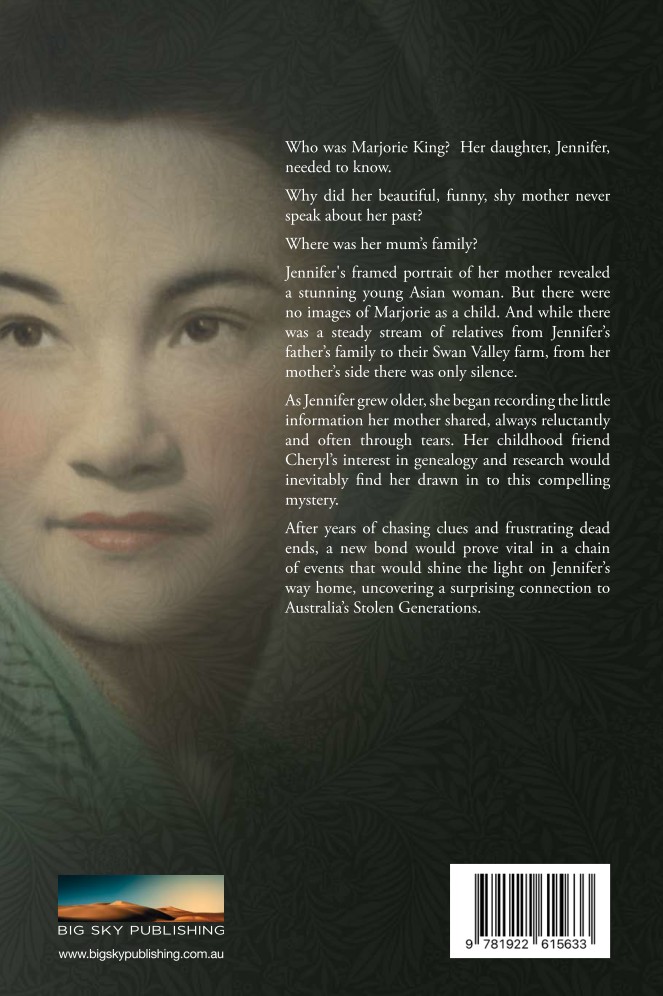THE LIGHTNING BOLT
JD
I was about six years old when a bolt of lightning shot through our kitchen louvres and blew the arse out of the fridge. Its lucky it wasnt meal time, because I was sitting where my brother Philip always sat when our family gathered around the laminex table for breakfast, lunch and dinner. Eight-and-a-half years older than me, Philip was also quite a bit taller and broader. The streak of electricity entered through the open louvres on the northwest corner of that room, shot just over my left shoulder and took out the button in the middle of the fridge door behind me.
Afterwards, I was aware of the smell of burning, the blackened fridge door handle and the knowledge that Mum and Dad would have to fork out for a new fridge. That would cost them, but our round-shouldered cream Kelvinator was a goner. I think the gods must have been moving that day. Had Philip been sitting where I was, he wouldnt have stood a chance. And had I been a little older, just a bit taller, I might not be telling you this story today. As it was, we all just happened to be in the right place at the right time. The members of our family, that is, not the fridge.
I am the youngest of Marjorie and Henry Yorks four children. Our home back then was a five-room asbestos cottage with a tin roof, on 10 acres in West Swan in the beautiful Swan Valley, near Perth. Ours was a small farm in the bush and backed on to the old Caversham Airfield, which in those days was a motor-racing circuit, all happening just over our back fence. It was around the time of the lightning strike that the famous Jack Brabham, later Sir Jack Brabham AM, OBE, raced there.
Wed run a little sideline on race days, allowing race fans to park on our place for a fee. And after it was all over, wed climb through the post-and-wire fence to the racetrack and collect as many discarded empty drink bottles as we could carry. Dad would cart them all off to a marine dealer and let us share the earnings. That was our pocket money. Mum even had a few driving lessons out on that airstrip with Dad trying to teach her. It was where most of the locals went to learn to drive. Not that Mum had much success she didnt get her licence until years later, after Id finished school. I guess it was always going to be hard trying to concentrate, with four young children packed into the back seat. Apparently, I was an angel. It was the others who mucked around and put her off.
Dad was very mindful of managing our land properly, keeping a healthy balance, having worked on a lot of farms like his father before him. Our bush was full of wildflowers kangaroo paws, smokey bush, orchids and in the paddocks and pens we ran sheep, chooks and geese. There was usually a goose baking in the wood oven at Christmas, so you can imagine how hot it got in that kitchen. Even years later, when we got a small electric oven, which sat on the benchtop, the wood stove was still used.
The garden beds around our house grew just about everything it was possible to grow including silverbeet, cabbage, cauliflowers, peas, beans, corn, onions and rhubarb. All sorts of fruit trees, including an enormous mulberry tree. The house still stands today where for the past century it has looked out across the front paddock towards Edward Street, set back a little from the main road.
Back then, in the early Sixties, we all had our set place around the table and were expected to stick to it. It was probably my parents way of maintaining some sort of order amidst the occasional chaos of family life. Dad sat at the head of the table at the south end, where he had a good view of both the back and front doors and could also keep an eye on all of us. Philip sat to his right next to my other brother George, with my sister Dawn at the north end near the wood stove, facing Dad. I sat to Dads immediate left, with Mum immediately to my left so I the youngest was firmly planted between both parents. Despite this structure, we were encouraged to join in lively discussions around the table. It was not a matter of children being seen and not heard, not in our house.
Dad believed it was important to know as much as possible about a subject, because that way we were less likely to come to grief, by experimenting to find out, for ourselves. Take sex, for instance. It was discussed along with politics, no topic was taboo. However, I seem to recall that when I was very small, there were times when I would be asked to leave the room for a few minutes, until the talk around the table had cooled down a bit.
From this young age, I was also aware that both my parents were very capable people.
Mum even used some home remedies to treat our cuts and scratches, like the time I stood on a broken lupin stalk. She made a poultice out of soap, sugar, bread and onion and applied it, to draw out the poison overnight. The same remedy was used to treat an infected cat scratch on my arm that was bubbling with pus.
Dad had virtually rebuilt our house, which had belonged to his parents. My grandfather George William York had died in 1943, when Dad was just 22, but Dads mother Eliza often stayed with us. Apparently, she was very tall and thin and had towered over my grandfather who was relatively short. She had white, white hair and used to let us roll her cigarettes.
As our family grew, Dad added a sleep-out to the south end as a main bedroom for him and Mum. It had a big bank of louvre windows along the length of the south wall. The boys occupied the bedroom opposite the kitchen, while Dawn and I slept in the girls room adjacent to the kitchen and opposite the family lounge.
Outside, Dad built the bathroom in a separate annex just off the kitchen. Every morning and night, hed light the chip-wood heater to warm the water for our morning and night-time baths yes, we bathed twice each day. It was a family ritual. Whoever happened to be the cleanest went first. This was before we became old enough to take on the responsibility of lighting the wood heater ourselves.
Right next to the bathroom, he built a huge pantry which Mum managed to fill because she was always pickling and bottling. She had a Fowlers Vacola kit and kept the shelves full of jars of pickled onions, bottled apples, pears, you name it, she even pickled fish.
In the gap between the pantry and the kitchen, Dad built us a proper, undercover toilet. It saved us shooting up the back to the outhouse in the bush beyond the house at all hours. This was around the time that the dunny man with the night cart stopped calling at our place.
Money was tight and for Mum and Dad that meant saving as much as they could by using what they grew. Bartering was also the norm. We would often trade surplus vegetables with nearby families in return for a few grapes or melons, when they had an oversupply. Dad also grew mushrooms and supplied the Perth market with Cape gooseberries, which were packed inside thin ply punnets.
He built all our cupboards in that green and white kitchen, even installing a big block of marble on one of the benchtops for Mum to make pastry. She was a wonderful cook, her sausage rolls were amazing.
We always had a full, cooked breakfast before leaving for work or school. This usually started with porridge or some other oat-based cereal followed by scrambled, fried or boiled eggs with toast soldiers. Or smoked fish.
At 6.45am, just as the ABC news was starting on the wireless, Dad would pick up his brown Gladstone bag and head off to drive to the Midland Railway workshops. Before the workshops, hed been a farm labourer working mainly around local vineyards including several years with prominent table grape pioneer Phil Taylor in West Swan. At the workshops he worked as a moulders assistant.


